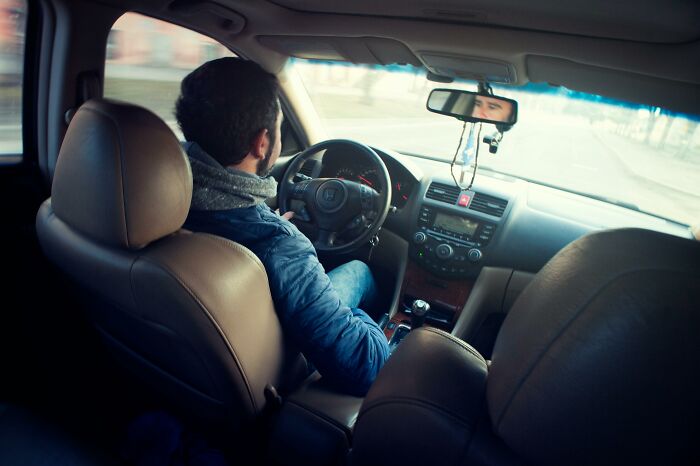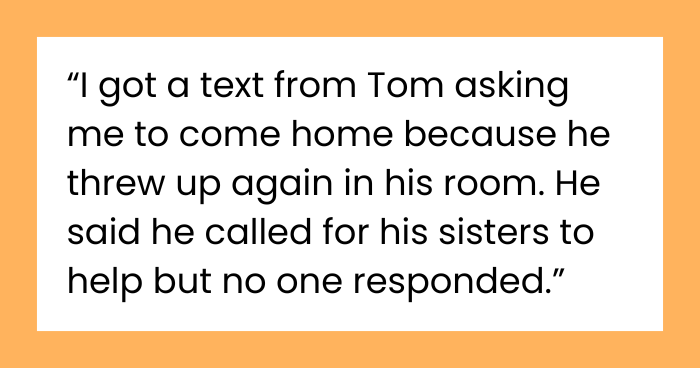Refusing to Drive My Wife to a Job Interview: Is It Justified?
When it comes to getting around, being able to drive is more than just a convenience; it’s a must–especially in rural places. Once one partner takes on all the driving, it can cause long-lasting anger and frustration, which can hurt the relationship’s balance and health. When jobs and responsibilities aren’t shared equally, especially when it comes to important tasks like transportation, many couples have trouble communicating with each other.
For several years, this husband has been getting more and more angry about having to be the only driver in a rural area. He has been telling his wife to become more independent by getting her own driver’s license and car, but not much has changed. This ongoing dynamic has caused deep feelings of imbalance, with one partner feeling unsupported and overly relied upon. This is now threatening to get in the way of important life choices, like going to a job interview.
When his wife gets a new job offer, her husband has to make a tough choice: he can either keep things the same by driving her to the interview, or he can finally set clear limits that encourage real freedom. This brings up an important question that comes up in a lot of relationships: when does helping a loved one become unhealthy supporting, and when is it okay to demand personal growth and accountability?
Sometimes, one person has to take on more responsibility, especially if their partner refuses to help out, which can lead to a lot of bitterness
The man shared that he and his wife were living in a rural area that wasn’t well connected, and that he had to constantly be the one driving, as she didn’t want to











The main source of conflict is years of one person being responsible for driving, which is something that many couples who live in remote or rural areas can connect to. Studies show that in rural areas, having efficient transportation is important for keeping a job, getting medical care, and going to social events. Without equal access to transportation, one partner will always have to deal with the practicalities of daily life, which can lead to stress and anger over time.

The wife doesn’t want to drive because she doesn’t have enough tools or help. Her husband pushed her to do it by helping her exchange her foreign driver’s license for a UK license, which took more than two years. He even offered to trade in his manual car for an automatic so that she could drive the way she wanted, which showed that he was willing to break down walls. Even with these offers, she hasn’t bought a car yet because she’s afraid of driving more “powerful” cars, even though small hatchbacks and other choices were easy to find.
When the wife said she was interested in a new job opportunity an hour away from their home, things got worse. When asked how she planned to get to a possible interview, she said she thought her husband would drive her. When I suggested other options, like renting a car, she said she was scared to drive alone in the UK for the first time. This showed not only that she wasn’t ready, but also that she thought her husband would keep meeting her needs, no matter how hard it was on him.
The bigger question of independence in marriage is at the heart of this problem. Experts on good relationships stress how important it is for both people to be able to do things on their own to keep the relationship balanced, respectful, and open for personal growth. Depending on one partner to handle travel all the time creates an unfair situation that could lead to anger and less respect for each other. This means that the husband’s anger isn’t just caused by a few bad experiences; it’s a pattern of his wants and limits being ignored over and over again.
In terms of how the relationship works, letting this behaviour happen over and over again may make it take longer for the wife to learn important life skills. Setting healthy limits is an important part of keeping your mental health in check in any relationship. If there is no clear boundary, one partner may continue to avoid important tasks, which is bad for their own growth as well as the general strength and fairness of the relationship.
On public forums and relationship advice sites like Reddit and Mumsnet, people often have different ideas about the same cases. Some people say that important times, like job interviews, should be the only times when help is given, even if there are problems. From these points of view, helping people out in tough times seems to build trust and motivation. On the other hand, a lot of people think that behaviour won’t change without clear results. They want clear boundaries so that both partners can take on the responsibilities needed for daily life and job growth.

There is now a choice for the husband: short-term kindness or long-term relationship health. At the time, driving his wife to the interview might seem like the easier choice, but it could lead to a habit of dependence that lasts longer. Even though it hurts at first, refusing to drive could be a wake-up call that shows how important it is to be independent in both personal and business situations. When it comes to relationships, sometimes the most helpful thing you can do is refuse to let unhealthy habits continue.
Folks sided with the poster, and some offered suggestions on how the woman could begin driving again













